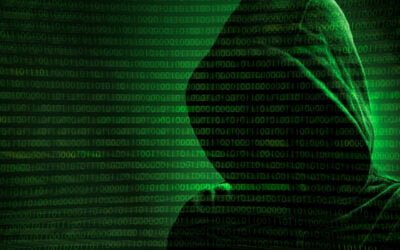As a professional in the digital landscape, I often come across the question – can hacking be useful? While hacking is commonly associated with malicious activities, it’s essential to recognize the benefits that ethical hacking brings to the table. Ethical hackers, authorized professionals who identify and exploit weaknesses in computer systems, play a crucial role in securing sensitive data and proprietary work products. In this guide, I will explore the advantages of ethical hacking and its significance in today’s cybersecurity landscape.
Key Takeaways:
- Ethical hacking is a vital tool in securing data and work products in the digital landscape.
- Ethical hackers play a crucial role in strengthening cybersecurity defenses.
- Understanding the different types of hackers helps distinguish between malicious and ethical hacking practices.
- Acquiring the necessary skills and education is essential for a career in ethical hacking.
- Safe and legal platforms provide environments for ethical hackers to practice and enhance their skills.
The Role of Ethical Hackers in Strengthening Cybersecurity
Ethical hackers play a vital role in strengthening cybersecurity by detecting and closing gaps in computer systems. While malicious hackers exploit vulnerabilities for personal gain, ethical hackers use their skills to protect systems and data from unauthorized access. Their responsibility is to identify weaknesses, report them to organizations, and work towards developing solutions that prevent data breaches. Ethical hacking acts as a defense mechanism against cyber threats and helps organizations bolster their digital security.
Identifying Vulnerabilities
One of the main tasks of ethical hackers is to identify vulnerabilities in computer systems. They apply their knowledge and expertise to find weaknesses that could potentially be exploited by malicious actors. By proactively seeking out these vulnerabilities, ethical hackers enable organizations to address them before they can be used for nefarious purposes. This proactive approach helps prevent cyber attacks and strengthens the overall security of the systems.
Developing Security Solutions
Once vulnerabilities are identified, ethical hackers work closely with organizations to develop effective security solutions. They collaborate with cybersecurity teams to implement patches, updates, and other measures that can prevent unauthorized access. By actively participating in the development of these solutions, ethical hackers contribute to the continuous improvement of security practices and help organizations stay one step ahead of cyber threats.
Raising Awareness and Education
In addition to their technical expertise, ethical hackers also play a crucial role in raising awareness and educating both organizations and individuals about cybersecurity threats. They conduct training sessions, share best practices, and provide guidance on how to protect sensitive data and digital assets. By promoting a culture of cybersecurity awareness, ethical hackers contribute to creating a safer digital environment for everyone.
In conclusion, ethical hackers are indispensable in the fight against cybercrime and the protection of sensitive information. Their skills and expertise in identifying vulnerabilities, developing security solutions, and raising awareness are key elements in strengthening cybersecurity defenses. By working together with organizations and individuals, ethical hackers play a vital role in safeguarding systems and data from malicious actors.
Types of Hackers: Understanding the Different Hats

When it comes to hacking, it is essential to understand that not all hackers have malicious intent. In the world of cybersecurity, hackers can be classified into different types based on their motivations and actions. These distinct groups are often referred to as the different “hats” that hackers wear. Let’s take a closer look at the two main categories: black hat hackers and white hat hackers, along with a third category known as gray hat hackers.
Black Hat Hackers
Black hat hackers are the bad actors in the hacking community. They exploit vulnerabilities in computer systems for personal gain or malicious purposes. These individuals employ their hacking skills to steal sensitive information, disrupt systems, or engage in other illegal activities. Black hat hackers pose a significant threat to individuals, businesses, and governments, as their actions can result in financial loss, privacy breaches, and infrastructure damage.
White Hat Hackers
On the other hand, white hat hackers, also known as ethical hackers, use their skills for good. These individuals are authorized professionals who work to identify and fix vulnerabilities in computer systems. They are often employed by organizations to help strengthen their cybersecurity defenses. White hat hackers employ the same techniques as black hat hackers but with the intention of preventing and mitigating cyber threats. Their work is legal and crucial in protecting systems and data from unauthorized access.
Gray Hat Hackers
Gray hat hackers fall somewhere in between black hat hackers and white hat hackers. They may hack into systems without authorization, similar to black hat hackers, but without malicious intent. Gray hat hackers often expose vulnerabilities they discover to the affected organizations, although they may not have legal permission to access or test the systems. While their actions may be well-intentioned, gray hat hackers still operate in a legal gray area.
| Hacker Type | Description |
|---|---|
| Black Hat Hackers | Hackers with malicious intent who exploit vulnerabilities for personal gain or illegal activities. |
| White Hat Hackers | Ethical hackers employed by organizations to identify and fix vulnerabilities for the purpose of strengthening cybersecurity defenses. |
| Gray Hat Hackers | Hackers who operate in a legal gray area, hacking without authorization but without malicious intent. |
Understanding the different types of hackers is crucial in distinguishing between malicious and ethical hacking practices. While black hat hackers pose a significant threat, white hat hackers play a vital role in protecting systems and data from cyber threats. The work of ethical hackers is essential in the ongoing battle against cybercrime and improving digital security for organizations and individuals alike.
Becoming an Ethical Hacker: Skills and Education

Interested in pursuing a career as an ethical hacker? It’s an exciting field that requires a specific set of skills and a strong foundation in cybersecurity. Whether you have a degree in computer science or are looking for alternative pathways, there are various options available to equip yourself with the necessary knowledge and expertise.
Education Pathways
While a degree in computer science or information technology is a common path for aspiring ethical hackers, it’s not the only route. Independent study, online courses, and specialized boot camps can also provide valuable learning opportunities. These resources allow you to gain practical skills and knowledge in networks, operating systems, programming languages, and cybersecurity.
“Ethical hacking requires a specific skill set and knowledge of networks, operating systems, programming languages, and cybersecurity.”
Additionally, online platforms like edX offer comprehensive cybersecurity courses that cover the fundamentals of ethical hacking. These courses are often created and taught by industry professionals, ensuring that you receive up-to-date information and insights.
Acquiring Skills
While formal education is valuable, hands-on experience is equally important for a career in ethical hacking. Participating in Capture the Flag competitions and solving hacking challenges on platforms like Hack The Box and PentesterLab can help you sharpen your skills and expand your knowledge. These platforms provide realistic environments where you can practice ethical hacking techniques in a safe and controlled setting.
Certifications
Obtaining certifications can boost your credibility and demonstrate your expertise in the field. The EC-Council’s Certified Ethical Hacker (CEH) certification is widely recognized and validates your understanding of ethical hacking methodologies and tools. Other certifications such as Offensive Security Certified Professional (OSCP) and Certified Information Systems Security Professional (CISSP) are also highly regarded within the industry.
By acquiring the necessary skills and knowledge through education, hands-on experience, and certifications, you can embark on a fulfilling career as an ethical hacker and contribute to the field of cybersecurity.
| Certification | Description |
|---|---|
| EC-Council’s Certified Ethical Hacker (CEH) | Validates understanding of ethical hacking methodologies and tools. |
| Offensive Security Certified Professional (OSCP) | Recognized certification that demonstrates practical skills and knowledge in ethical hacking. |
| Certified Information Systems Security Professional (CISSP) | Highly regarded certification covering various domains of cybersecurity, including ethical hacking. |
Practicing Ethical Hacking Safely and Legally
As ethical hackers, it is crucial that we practice our skills in safe and legal environments. Fortunately, there are various platforms and websites that provide training labs, challenges, and virtual machines designed specifically for ethical hacking practice. These resources allow us to sharpen our skills, explore different hacking techniques, and stay up to date with the latest trends in cybersecurity.
One such platform is the PortSwigger Web Security Academy, which offers a range of free online labs and tutorials covering different aspects of web application security. These labs provide hands-on experience in identifying and exploiting vulnerabilities in web applications, helping us improve our understanding of common attack vectors and defensive measures.
“Practicing ethical hacking in a controlled environment allows us to develop our problem-solving skills and gain practical experience in real-world scenarios.”
Another popular platform for ethical hacking practice is Hack The Box. This platform provides a plethora of challenges and virtual machines that simulate real-world scenarios. By solving these challenges and gaining access to vulnerable systems ethically, we can enhance our hacking skills and understand the mindset of malicious attackers.
It’s important to note that while practicing ethical hacking, we must exercise caution and act responsibly. While these platforms are designed for learning and skill development, they can still pose potential risks if used carelessly. Therefore, it is paramount to adhere to ethical guidelines, respect the platform’s terms of service, and always obtain proper authorization before attempting any hacking activities.
In conclusion, platforms like PortSwigger Web Security Academy and Hack The Box provide safe and legal environments for ethical hackers to practice their skills. By utilizing these resources responsibly, we can enhance our knowledge, develop problem-solving abilities, and contribute to the field of cybersecurity.
Table: Comparison of Ethical Hacking Practice Platforms
| Platform | Features | Cost |
|---|---|---|
| PortSwigger Web Security Academy | Free online labs and tutorials | Free |
| Hack The Box | Challenges and virtual machines simulating real-world scenarios | Subscription-based, with a free option available |
The Thrill of Ethical Hacking Competitions
As an ethical hacker, participating in hacking competitions is not only an exciting experience but also a valuable opportunity to showcase my skills and learn from other talented individuals in the field. These competitions simulate real-world scenarios, providing an immersive environment where I can put my knowledge to the test. The thrill of solving complex challenges and outsmarting security measures is unmatched, making ethical hacking competitions a must for anyone passionate about cybersecurity.
One platform that offers a range of hacking tournaments is Bug Hunters. This community-driven platform hosts contests where ethical hackers can compete against each other and earn recognition for their abilities. The challenges cover various aspects of cybersecurity, including web application vulnerabilities, network security, and cryptography. By participating in Bug Hunters competitions, I have not only enhanced my technical skills but also expanded my network by connecting with like-minded individuals who share the same passion for ethical hacking.
Participating in ethical hacking competitions has been an invaluable experience for me. The high-pressure environment pushes me to think creatively and develop innovative hacking techniques. It’s also a platform where ethical hackers can exchange knowledge and learn from each other’s strategies. Winning prizes and gaining recognition for my skills is an added bonus that motivates me to continually improve my abilities.
Hacker101 is another platform that organizes hacking tournaments and provides a comprehensive learning experience for those seeking to enhance their ethical hacking skills. The challenges on Hacker101 cover a wide range of topics, from basic web vulnerabilities to advanced exploit development. By participating in these competitions, I have gained a deeper understanding of real-world hacking techniques and the methodologies used by skilled hackers.
Global Cyberlympics is yet another notable ethical hacking competition that brings together top talent from around the world. This tournament challenges participants to solve complex security tasks and showcases their ability to think critically and strategize under pressure. The Global Cyberlympics not only provides a platform for ethical hackers to showcase their skills but also promotes collaboration and innovation in the field of cybersecurity.
The Benefits of Ethical Hacking Competitions
Participating in ethical hacking competitions offers several benefits. First and foremost, it provides a platform to sharpen and improve technical skills. The challenges presented in these tournaments expose participants to real-world scenarios, allowing them to gain practical experience and expand their knowledge in the field of cybersecurity.
Secondly, ethical hacking competitions foster a sense of community and collaboration among participants. By engaging with fellow ethical hackers, exchanging ideas, and learning from their strategies, participants can build a professional network and broaden their understanding of ethical hacking techniques.
Lastly, these competitions provide an opportunity for ethical hackers to gain recognition for their skills and expertise. Winning prizes, receiving accolades, and having the ability to showcase their achievements can open doors to new career opportunities and professional growth in the cybersecurity industry.
| Platform | Description |
|---|---|
| Bug Hunters | A community-driven platform that hosts hacking competitions and challenges |
| Hacker101 | An online platform offering hacking tournaments and comprehensive learning resources |
| Global Cyberlympics | An international ethical hacking competition promoting collaboration and innovation in cybersecurity |
Conclusion
In conclusion, ethical hacking brings with it numerous positive aspects in the digital landscape. By responsibly conducting ethical hacking, professionals can contribute to strengthening cybersecurity defenses and safeguarding sensitive data and proprietary work products. The practice of ethical hacking not only helps organizations identify and fix vulnerabilities but also promotes innovation in hacking techniques.
Understanding the different hats in the hacking community is crucial for distinguishing between malicious and ethical hacking practices. By acquiring the necessary skills and education in networks, operating systems, programming languages, and cybersecurity, individuals can actively contribute to the field of ethical hacking and make a positive impact on digital security.
Furthermore, ethical hacking fosters innovation by simulating real-world scenarios and encouraging hackers to showcase their skills in competitions. These competitions provide a platform for hackers to compete, innovate, and earn recognition and rewards for their abilities. Overall, ethical hacking serves as a tool for positive change, ensuring the continuous improvement of digital security in our rapidly evolving technological landscape.
FAQ
What is ethical hacking?
Ethical hacking is the practice of authorized professionals who identify and exploit weaknesses in computer systems with the intention of fixing them. It is a crucial tool for securing sensitive data and improving cybersecurity defenses.
How do ethical hackers strengthen cybersecurity?
Ethical hackers detect and close gaps in computer systems, helping to protect systems and data from unauthorized access. They identify weaknesses, report them to organizations, and work towards developing solutions that prevent data breaches.
What are the different types of hackers?
Hackers can be classified into different types based on their motivations and actions. Black hat hackers are malicious cybercriminals, white hat hackers are ethical hackers who protect systems, and gray hat hackers fall somewhere in between.
What skills and education are required to become an ethical hacker?
Ethical hacking requires a specific skill set and knowledge of networks, operating systems, programming languages, and cybersecurity. While a degree in computer science or information technology is common, independent study, online courses, and specialized boot camps are also available paths to learning ethical hacking.
Where can I practice ethical hacking safely and legally?
Various platforms and websites offer training labs, challenges, and virtual machines specifically designed for ethical hacking practice. Examples include PortSwigger Web Security Academy, Hack The Box, PentesterLab, and TryHackMe. It is important to exercise caution and use these platforms responsibly.
Are there any ethical hacking competitions?
Yes, ethical hacking competitions provide an opportunity for hackers to showcase their skills, compete against each other, and win prizes. Examples of such platforms are Bug Hunters, Hacker101, and Global Cyberlympics.
What are the benefits of ethical hacking?
Ethical hacking strengthens cybersecurity defenses, helps organizations identify and fix vulnerabilities, and promotes innovation in hacking techniques. It plays a crucial role in securing sensitive data and improving digital security.




